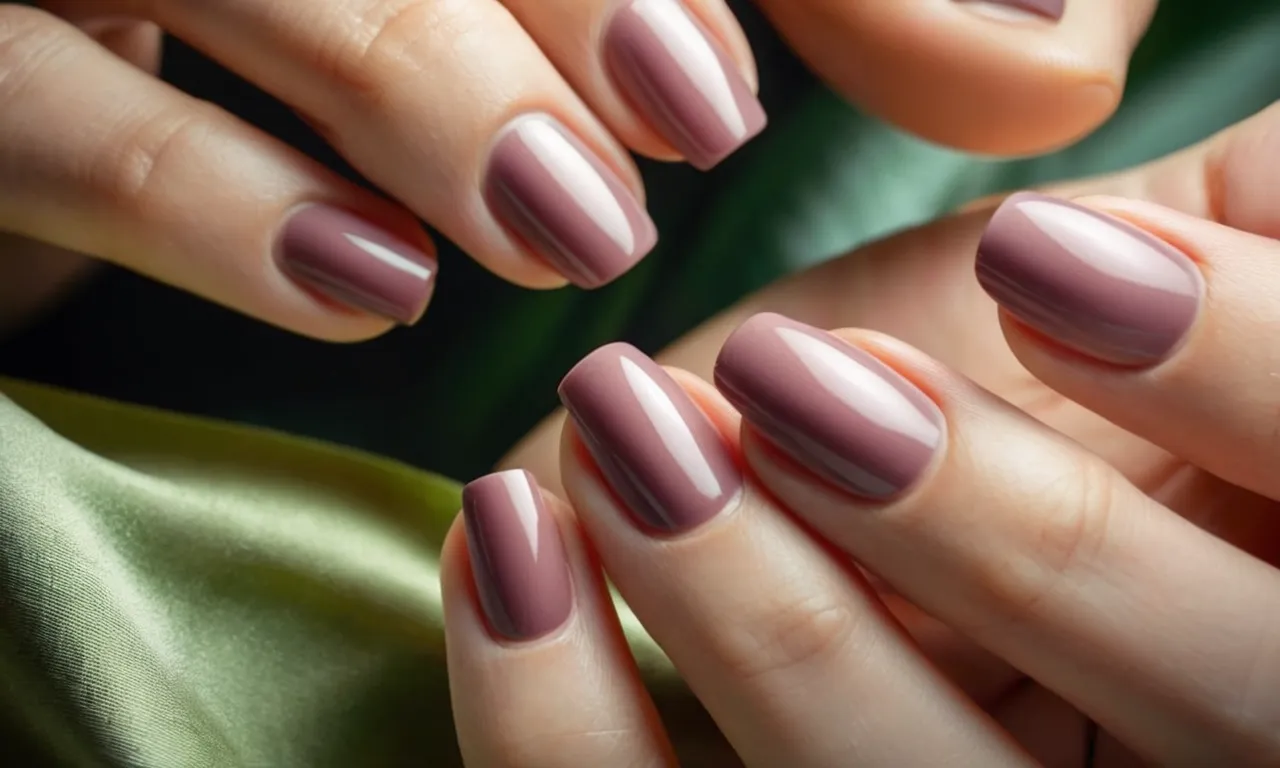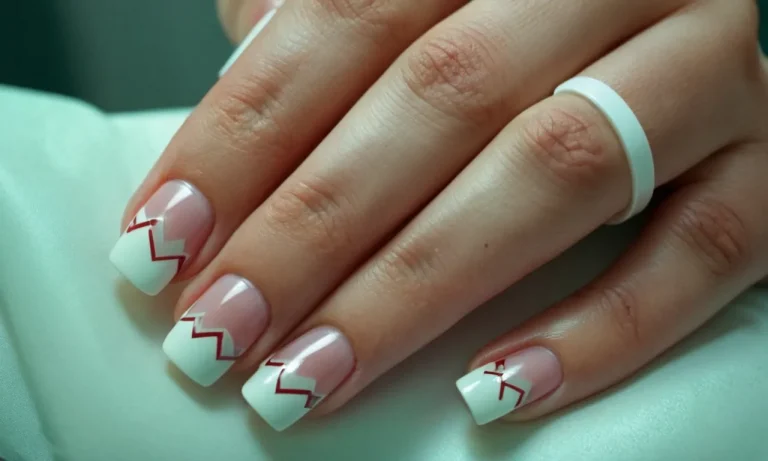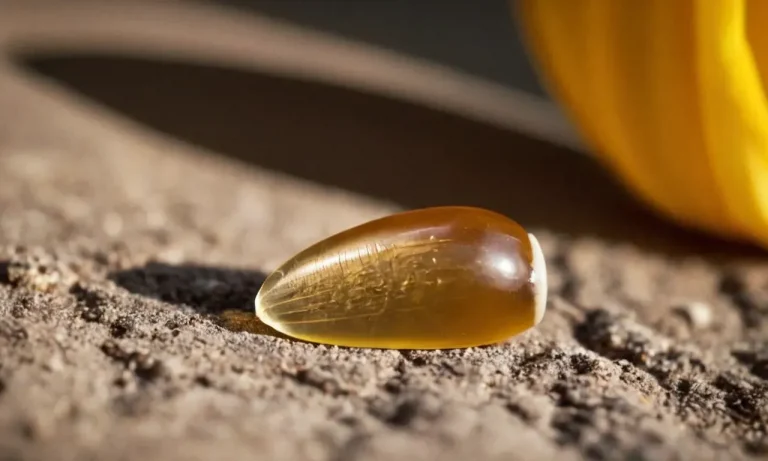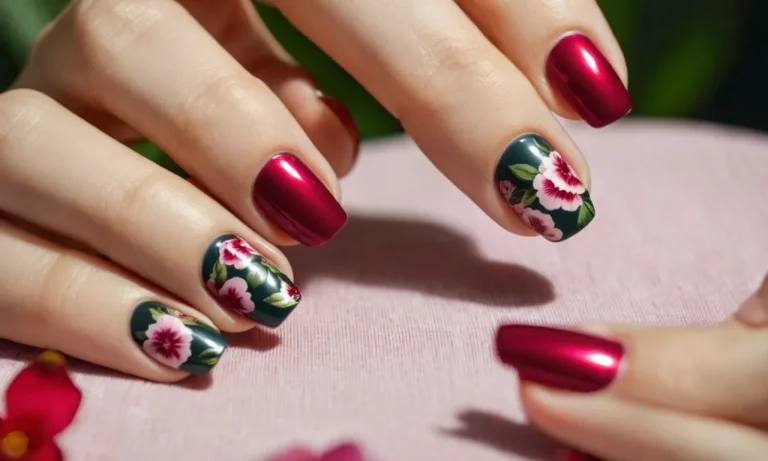How To Strengthen Your Nails And Keep Them Healthy
Having weak, brittle nails that break easily can be frustrating. Luckily, there are many things you can do to strengthen your nails and help them grow long and healthy.
If you’re short on time, here’s a quick answer: Soak your nails in olive oil, eat more protein and biotin-rich foods, use a strengthening nail polish, and avoid very hot water and chemicals.
Understand What Makes Nails Brittle
Genetics and Aging
As we age, our nails naturally become more brittle and dry. This is largely due to genetics and the normal aging process. With age, the nails lose moisture and elasticity, making them more prone to cracking and peeling.
For some, genetics also play a role, predisposing them to weaker, more fragile nail beds. While we can’t change our genetics or reverse the aging process, there are steps we can take to strengthen nails as we get older.
Nutrient Deficiencies
Deficiencies in certain vitamins and minerals can leave nails dry, brittle, and prone to splitting or peeling. Key nutrients for healthy nails include:
- Biotin – Helps produce keratin, a protein that makes up the nail.
- Calcium – Promotes strong nail beds.
- Zinc – Supports nail growth and repair.
- Iron – Carries oxygen to nail beds.
- Omega-3s – Helps maintain moisture and elasticity.
Ensuring you get enough of these nutrients from your diet or supplements can help strengthen weak, brittle nails over time.
Dehydration
When the body is dehydrated, nails are one of the first places it shows. Lack of sufficient fluids causes nails to become dry and brittle.Aim for at least 64 ounces of water daily to support nail health and prevent cracking. Also, use a hydrating nail oil daily.
Frequent Wet Work
Exposing nails to water frequently without gloves can draw moisture out of the nail plate, leaving nails dry and prone to splitting. Those whose jobs or hobbies involve frequent handwashing or other wet work are especially prone.
Wear gloves during wet tasks and apply a nourishing hand cream after to restore moisture.
Harsh Chemicals and Cleaners
Harsh soaps, detergents, cleaning products contain ingredients that can dry and weaken nails over time. When possible, wear gloves when using these products. Alternate between gloves and a moisturizing hand cream after washing to limit chemical exposure and restore moisture.
Acetone nail polish remover is especially dehydrating for nails.
Eat a Nail-Healthy Diet
Foods Rich in Biotin
Biotin, also known as vitamin B7, is an essential nutrient that helps strengthen nails and improve their thickness. Foods that are high in biotin include eggs, salmon, avocados, nuts and seeds, sweet potatoes, spinach, and whole grains.
Getting adequate amounts of biotin either through food sources or supplements has been linked to stronger, healthier nails in multiple studies. Aim for 30-100 mcg of biotin daily for optimal nail health.
Foods with Protein and Zinc
Adequate intake of protein and zinc is crucial for building strong nails from within. Great protein sources include eggs, meat, fish, dairy, beans, lentils, and tofu. High-zinc foods include oysters, wheat germ, spinach, pumpkin seeds, and mushrooms.
Getting enough of these key nutrients enables the growth of tough and resilient keratin, the protein that makes up the bulk of our nails.
Antioxidants
Antioxidants help protect nails against damage from harmful free radicals and inflammation. Fruits and vegetables packed with antioxidants like vitamins C and E and selenium include citrus fruits, broccoli, tomatoes, spinach, bell peppers, berries, kiwi, pineapple, papaya, and mushrooms.
Getting a daily dose of antioxidant-rich produce will promote nail growth and safeguard your nails’ health.
Healthy Fats like Omega-3s
Healthy fats like omega-3 fatty acids support nail strength and growth. Foods rich in omega-3s include fatty fish like salmon, mackerel, sardines, herring, and trout. Plant sources like walnuts, flaxseeds, chia seeds, and soybeans also supply omega-3 fats.
Getting enough of these healthy fats prevents nails from becoming brittle and dry.
Stay Hydrated
Proper hydration is key for healthy nail growth. When you are dehydrated, nails can become brittle and dry. Aim for around 2 liters or half a gallon of water daily, along with hydrating fluids like herbal tea, broths, and fresh fruit and vegetable juices.
Keeping your body well hydrated from within creates the ideal environment for strong nail growth.
Avoid Excess Sugar and Refined Carbs
A diet high in sugar and refined carbohydrates is detrimental for nail health. Foods like candy, cookies, sodas, white bread, pasta, and pastries cause spikes in blood sugar levels. This leads to inflammation that can weaken nails.
Limit sugar and refined grains and instead opt for healthy complex carbs from fruits, vegetables, legumes, and whole grains to support strong nails.
Use Topical Treatments on Nails
Moisturizing Oils
Keeping nails moisturized is key to strengthening them. Massaging nails and cuticles with moisturizing oils like olive, coconut or jojoba oil helps hydrate the nails and prevent brittleness (source). Apply a few drops to each nail about 2-3 times per week.
The vitamins and fatty acids in these oils nourish the nails. For an extra nail boost, add a few drops of vitamin E oil as well. Its antioxidant properties help protect nails from damage.
Strengthening Polishes and Creams
Using a nail hardener or strengthener 1-2 times per week helps reinforce weak, brittle nails. These products contain ingredients like calcium, formaldehyde, silk protein, and biotin to help build strong, healthy nails.
Look for terms like “nail conditioning”, “nail building” or “nail fortifying” on the label (source). Apply a thin layer to clean nails, allowing each coat to dry before adding another. Using cuticle cream after takes it a step further to moisturize and nourish the nail beds.
Cuticle Creams
Caring for the cuticles is essential for nail health. Cuticle cream hydrates and softens the cuticles, preventing painful cracking or tearing. Look for creams with moisturizing ingredients like shea butter, vitamin E, and coconut oil.
Gently push back cuticles each week with an orangewood stick after a shower or bath when cuticles are more pliable. Then, massage the cream into cuticles and nails (source). Regular cuticle care prevents hangnails and boosts nail strength.
Avoid Harsh Chemicals in Beauty Products
Many chemicals used in nail polish removers, artificial nails, and nail salon practices can weaken nails over time. Ingredients like acetone, formaldehyde, toluene, and phthalates dry out nails and strip away natural oils.
When possible, opt for acetone-free nail polish remover and “3-free” or “5-free” nail polishes lacking those harsh chemicals (source). Also, give nails a break occasionally from gel manicures or acrylics, which can thin out nails. Letting nails “breathe” helps strengthen them.
Have a Healthy Nail Care Routine
Trim and File Carefully
Trimming your nails regularly is crucial for healthy growth. Use sharp nail clippers or scissors to avoid jagged edges and splits. File nails gently in one direction after clipping to smooth any rough edges. Be careful not to overfile or thin out the nails too much, as this can weaken them.
Use a Protective Base Coat
Applying a base coat underneath colored polish creates a barrier that can prevent staining and damage. Opt for a strengthening base coat formula containing nutrients like calcium, biotin, and peptides to help fortify nails.
Allow the base coat to dry thoroughly before applying color. Using a good base coat is one of the best ways to maintain strong, healthy nails when wearing polish.
Take Breaks from Nail Polish
Giving your nails a break from polish periodically allows them to breathe and recover strength. If you wear dark polishes, be sure to remove them after 3-4 days to prevent staining. Going polish-free for a few days here and there gives nails a chance to rehydrate and firm up.
Consider Supplements
If your nails seem weak or brittle no matter what, you may benefit from supplements. Biotin, vitamin E, and collagen supplements support keratin production and stimulate growth. Calcium supplements also help strengthen nails by providing important minerals.
Ask your doctor before starting any new supplement regimen.
Wear Gloves for Wet Work
Exposing nails to water, chemicals, or other liquids frequently can lead to damage over time. Wearing rubber gloves when washing dishes, cleaning, or using harsh products helps shield nails from excess moisture that can weaken them. Consider cotton-lined gloves for extra comfort and protection.
See Your Doctor If Needed
Having healthy, strong nails is important, but sometimes nail problems can persist even with good care. If you are experiencing ongoing issues with brittle, cracking, peeling, or discolored nails, it may be time to schedule an appointment with your doctor.
Here are some signs that indicate you should see a dermatologist or nail specialist:
- Frequent nail breaking and peeling that does not improve with at-home care
- Discoloration of the nails that does not go away
- Ridges or grooves running down the length of the nails
- Nail pitting or small depressions in the nails
- Loose, separating nails
- Nails that are abnormally thick or thin
- Nail growth that is faster on one hand than the other
- Bleeding or pus around the nails
- Pain or tenderness around the nails
Some nail abnormalities can be a sign of an underlying medical condition such as thyroid disease, diabetes, or autoimmune disorders. A dermatologist can examine your nails and determine if further testing is needed.
Treatments a doctor may recommend for unhealthy nails include:
- Prescription ointments, creams, or nail polishes
- Oral medications
- Injections around the nails
- Removal of part or all of the nail
In some cases, the doctor will also evaluate your diet and habits to see if nutritional deficiencies or behaviors like nail biting are contributing to the problem.
While home care and over-the-counter products can go a long way towards strengthening nails, it’s important to see a doctor if problems persist. Getting an accurate diagnosis and following professional treatment recommendations can help restore the health and appearance of your nails.
Conclusion
While genetics play a role, there are many effective ways to have strong, healthy nails. Focus on getting enough protein, biotin, vitamins and minerals in your diet. Use moisturizing, nutrient-rich oils and treatments daily. Avoid very hot water, frequent wet work, and harsh chemicals.
With some diligent care, you can help your nails grow their longest and look their best.
Implement even a few of these nail-strengthening tips, and you should notice an improvement in a few weeks. Just remember to be patient and persistent, since it takes time for new, healthier nails to grow out and replace brittle ones.







